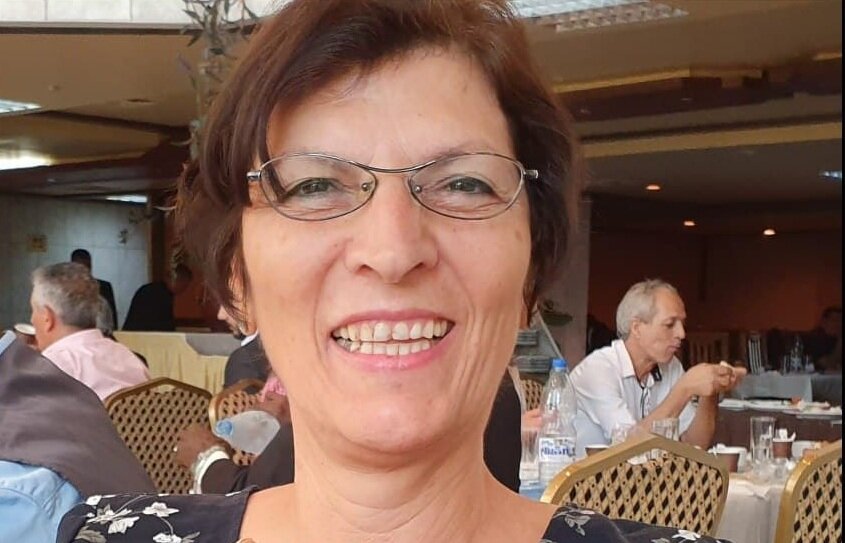General Soleimani’s legacy: Unifying the Arab resistance against imperialism and hegemony

Today, the masses of the resistance movements in the region are commemorating the first anniversary of the martyrdom of General Qassem Soleimani and his companion Abu Mahdi al-Muhandis.
General Soleimani played a major transnational role across borders and sectarian lines to unite the resistance movements in the region to enable them to confront the vicious plans of the USA, Zionist and Saudi regimes to divide and control the countries of the region.
We have to emphasize and remind the whole world of the nature of this cowardly act by the USA, the Zionist terrorist colonial regime, and the Saudi criminal state.
The assassination in its nature is an intentional and deliberate crime, a violation of international law and the Fourth Geneva Convention. It is also a violation of the sovereignty of the state of Iraq, which is a member of the United Nations. The Iranian government has every right to take this matter to the ICC against the three countries who were involved in this crime and to the UN Security Council in addition to retaliation.
Why did the USA assassinate General Soleimani? First of all, General Soleimani was a leader in the Revolutionary Guard, then the General Commander of its Al Quds Force, which by its name considered by the USA as a threat to the Zionist colonial regime in occupied Palestine, their military base in the area.
Second, for his extraordinary role in assisting the Lebanese resistance movement, Hezbollah, who was at war with the Israeli occupation of South Lebanon and was able to liberate the South in the May of 2000 with the great help of Iran and Soleimani. He continued to assist through the 2006 Israeli aggression against Lebanon until his assassination. Today, the Lebanese resistance movement has advanced its military and logistic capabilities by almost 100 times since 2000 and 2006.
The third is General Soleimani’s role in promoting the Palestinian resistance in the Gaza Strip without any factional or sectarian discrimination. His strategy was to work with all Islamic and secular resistance organizations who share the ability and fit to fight a long term struggle against the Israeli occupation, “the absolute evil”, as described by him, until liberation and independence. It was General Soleimani who took the decision with Sayyed Hassan Nasrallah to negotiate with President Bashar Al Assad to provide the Palestinian resistance with Cornet missiles and he took responsibility to deliver them to Gaza in 2005 which was the cornerstone in deterring military aggression. He transformed the Palestinian resistance to an advanced level.
Fourth, General Soleimani played a great military role in the joint operation room against FSA, ISIS, and Jabhat al-Nusra through the 10 years of the terrorist war against Syria. He fought hand in hand with the Syrian Arab Army and Hezbollah fighters, provided them with training, ammunition, and supplies.
Fifth, General Soleimani also played a great role in assisting the Iraqi resistance movement regardless of their religious or political backgrounds. He helped unite the different groups under one umbrella: the popular brigades (Hashd al-Shaabi). He provided them with training, ammunition, supplies, and logistics. He was a good companion with Abu Mahdi al-Muhandis, the deputy leader of Hashd al-Shaabi, and worked with him hand in hand in the different fronts in Iraq until they defeated ISIS.
Sixth, General Soleimani also supported the Yemeni Army, popular committees, and Ansarullah in their fight against the Saudi, the U.S., and Zionist aggression of 2200 days in a row, which has left hundreds of thousands of casualties mainly among children, women, and the elderly.
General Soleimani’s legacy of uniting the resistance movements in the region from Iraq to Syria, Lebanon, Yemen and most importantly uniting the resistance forces in Gaza, the front line against the Zionist colonial apartheid regime. A deterrence power that forced the Zionist military and political apparatus from any aggression attempts or land incursions.
The general was a man of ethics, principles, and passion; an exceptional military general with strategic thinking and diplomatic skills. He was assassinated while he was on a diplomatic mission. His assassination is a great loss for the axis of resistance and humanity but marks the defeat of the U.S. hegemony and aggression era.
